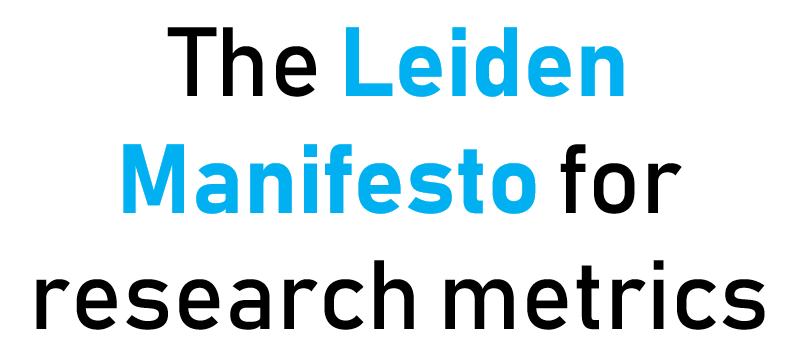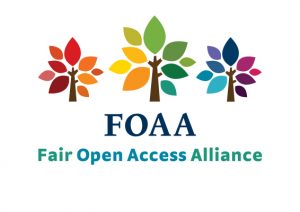¿Se relacionan el temperamento y la asistencia a los jardines maternales con las habilidades sociales durante los primeros años de vida?
Temperamento, jardín maternal y habilidades sociales
DOI:
https://doi.org/10.24215/2422572Xe066Palabras clave:
Habilidades sociales, Temperamento, Jardín maternal, InfanciaResumen
El objetivo de la siguiente investigación fue evaluar las relaciones entre las habilidades sociales, los estilos temperamentales y la asistencia a jardines maternales en los primeros años de vida. La muestra estuvo conformada por 102 cuidadores primarios de infantes de 18 a 48 meses de edad (M= 30,48 meses; DS= 10,45). Se administró un cuestionario ad-hoc, la escala de Habilidades Sociales adaptada por Lacunza et al. (2009) y el Cuestionario de Conducta de Niñez Temprana (ECBQ-VSF; Rothbart et al., 2001). Se encontraron asociaciones entre los estilos temperamentales y las habilidades sociales, pero no con respecto a la asistencia a los jardines maternales. Se concluye que las diferencias individuales de los infantes estarían contribuyendo a su forma de interrelacionarse, y que serían necesario recabar información referida a la calidad de los jardines maternales para hallar variaciones, ya que en este rango etario las conductas sociales aún son muy variables y volátiles.
Referencias
Aubone, N. S., Franco, P., Mustaca, A. E. (2016). Habilidades sociales en niños y su relación con el jardín maternal. ConCiencia EPG, 1(2), 57-71. https://doi.org/10.32654/concienciaepg.1-2.5
Aulicino, C., Gerenni, F., y Acuña, M. (2015). Primera infancia en Argentina: políticas a nivel nacional. Documento de Trabajo Nº143. CIPPEC Políticas Públicas.
Bárrig Jó, P., y Alarcón Parco, D. (2017). Temperamento y competencia social en niños y niñas preescolares de San Juan de Lurigancho: un estudio preliminar. Liberabit, 23(1), 75-88. https://doi.org/10.24265/liberabit.2017.v23n1.05
Berdan, L. E., Keane, S. P., y Calkins, S. D. (2008). Temperament and externalizing behavior: social preference and perceived acceptance as protective factors. Developmental Psychology, 44(4), 957-968. https://doi.org/10.1037/0012-1649.44.4.957
Berlinski, S., Galiani, S. y Gertler, P. (2009). The effect of pre-primary education on primary school performance. Journal of Public Economics, 93(1-2), 219-234. https://doi.org/10.1016/j.jpubeco.2008.09.002
Blanco, A. (1981). Evaluación de las habilidades sociales. En R. Fernández Ballesteros y J. A. Carrobles (Eds.), Evolución conductual: metodología y evaluación (pp. 568). Pirámide.
Britto, P. R., Lye, S. J., Proulx, K., Yousafzai, A. K., Matthews, S. G., Vaivada, T., ... y MacMillan, H. (2017). Nurturing care: promoting early childhood development. The Lancet, 389, 91-102. https://doi.org/10.1016/s0140-6736(16)31390-3
Broekhuizen, M. L., Mokrova, I. L., Burchinal, M. R., Garrett-Peters, P. T., & Family Life Project Key Investigators. (2016). Classroom quality at pre-kindergarten and kindergarten and children’s social skills and behavior problems. Early Childhood Research Quarterly, 36, 212-222. https://doi.org/10.1016/j.ecresq.2016.01.005
Calkins, S.D. (2005). El temperamento y su impacto en el desarrollo infantil: Comentarios sobre Rothbart, Kagan y Eisenberg. En R.E. Tremblay, M. Boivin y R. Peters (Eds.), Enciclopedia sobre el desarrollo de la primera infancia. Nueva York. Wiley. https://doi.org/10.35376/10324/10385
Carson, V., Lee, E. Y., Hesketh, K. D., Hunter, S., Kuzik, N., Predy, M., ... y Hinkley, T. (2019). Physical activity and sedentary behavior across three time-points and associations with social skills in early childhood. BMC Public Health, 19(1), 1-8.
CIPPEC (2015). Tasa de matriculación por edad simple, 0 a 5 años, en Argentina. DiNIEE-MED.
Clark, L. A., Watson, D., y Mineka, S. (1994). Temperament, personality, and the mood and anxiety disorders. Journal of Abnormal Psychology, 103(1), 103-116. https://doi.org/10.1037/0021-843x.103.1.103
Cochet, H. y Byrne, R. W. (2016). Communication in the second and third year of life: Relationships between nonverbal social skills and language. Infant Behavior and Development, 44, 189-198.
Cornelissen, T., Dustmann, C., Raute, A. y Schönberg, U. (2018). Who benefits from universal child care? Estimating marginal returns to early child care attendance. Journal of Political Economy, 126, 2356-2409. https://doi.org/10.1086/699979
Corrales, P. V. y Schroeder, M. B. (2018). Habilidades sociales en niños/as escolarizados de cuatro años que asistieron y no asistieron a jardín maternal (Tesis de Licenciatura). Buenos Aires: Universidad Católica Argentina. https://doi.org/10.26422/aucom.2017.0602.ure
Correia-Zanini, M. R. G., Marturano, E. M. y Fontaine, A. M. G. V. (2018). Effects of early childhood education attendance on achievement, social skills, behaviour, and stress. Estudos de Psicologia, 35(3), 287-297. https://doi.org/10.1590/1982-02752018000300007
Durand, M., Martínez, M., Gago Galvagno, L. y Elgier, A. (2020). El desarrollo de la comunicación preverbal y verbal temprana. La importancia del juego. Revista Iberoamericana de Psicología, 13(1), 23-32. https://doi.org/10.33881/2027-1786.rip.13103
Eckerman, C. O. y Stein, M. R. (1982). The toddler’s emerging interactive skills. In Peer relationships and social skills in childhood (pp. 41-71). Springer.
Eisenberg, N. (2012). Temperamental effortful control (self-regulation). Encyclopedia on Early Childhood Development. Wiley.
Eisenberg, N., Fabes, R. A., Guthrie, I. K., & Reiser, M. (2000). Dispositional emotionality and regulation: their role in predicting quality of social functioning. Journal of Personality and Social Psychology, 78(1), 136. https://doi.org/10.1037/0022-3514.78.1.136
Fabes R.A., Gaertner B.M. y Popp T.K (2005). Getting along with others: Social competence in early childhood. En K. McCartney y D. Phillips (Eds.), Blackwell handbook of early childhood development. Blackwell Publishing.
Felfe, C. y Lalive, R. (2018). Does early child care affect children's development? Journal of Public Economics, 159, 33-53. https://doi.org/10.1016/j.jpubeco.2018.01.014
Felfe, C. y Zierow, L. (2018). From dawn till dusk: Implications of full-day care for children’s development. Labour Economics, 55, 259-281. https://doi.org/10.1016/j.labeco.2018.10.006
Felfe, C., Nollenberger, N. and Rodríguez-Planas, N. (2014). Can’t buy mommy’s love? Universal childcare and children’s long-term cognitive development. Journal of Population Economics, 7(2), 14-27. https://doi.org/10.1007/s00148-014-0532-x
Fort, M., Ichino, A. y Zanella, G. (2016). Cognitive and non-cognitive costs of daycare 0-2 for girls. ZA Discussion Papers, 9756. https://doi.org/10.2139/ssrn.2737370
Fort, M., Ichino, A. y Zanella, G. (2017). The cognitive cost of daycare 0-2 for children in advantaged families. Reporte técnico. Mimeo.
Freund, J. D. (2019). Early temperament in parental report and scientific observation. Early Child Development and Care, 189(14), 2318-2333. https://doi.org/10.1080/03004430.2018.1450252
Frick, M. A., Bohlin, G., Hedqvist, M., & Brocki, K. C. (2019). Temperament and cognitive regulation during the first 3 years of life as predictors of inattention and hyperactivity/impulsivity at 6 years. Journal of Attention Disorders, 23(11), 1291-1302. https://doi.org/10.1177/1087054718804342
Gago Galvagno, L. G., De Grandis, M. C., Clerici, G. D., Mustaca, A. E., Miller, S. E. y Elgier, A. M. (2019). Regulation during the second year: Executive function and emotion regulation links to joint attention, temperament and social vulnerability in a Latin American sample. Frontiers in Psychology, 10, 1473. https://doi.org/10.3389/fpsyg.2019.01473
Gupta, N. D. y Simonsen, M. (2010). Non-cognitive child outcomes and universal high quality child care. Journal of Public Economics, 94, 30-43. https://doi.org/10.1016/j.jpubeco.2009.10.001
Jones, D. E., Greenberg, M., y Crowley, M. (2015). Early social-emotional functioning and public health: the relationship between kindergarten social competence and future wellness. American Journal of Public Health, 105(11), 2283–2290.
Kochanska, G., Murray, K. y Harlan, E.T. (2000). Effortful control in early childhood: Continuity and change, antecedents, and implications for social development. Developmental Psychology, 36(2), 220–232. https://doi.org/10.1037/0012-1649.36.2.220
Lacunza, A. B., Solano, A. C. y Contini, N. (2009). Habilidades sociales preescolares: una escala para niños de contextos de pobreza. Revista de Psicología, 27(1), 4-28.
Lordelo, E. D. R., Chalhub, A. A., Guirra, R. C., & Carvalho, C. S. (2007). Context and cognitive development: attendance to day care center and evolution of mental development. Psicologia: Reflexão e Crítica, 20, 324-334. https://doi.org/10.1590/s0102-79722007000200019
Marzonetto, G., & Enríquez, C. R. (2017). El desafío de las capacidades estatales para construir un sistema nacional de cuidados en Argentina. En XXXV International Congress Latin American Studies Association. Lima, Perú.
Mink, D., Henning, A. y Aschersleben, G. (2014). Infant shy temperament predicts preschooler’s theory of mind. Infant Behavior and Development, 37(1), 66-75. https://doi.org/10.1016/j.infbeh.2013.12.001
Miral, A., y Vera-Nuñez, L. (2017). Control esforzado: componente regulatorio del temperamento y sus implicancias en el desarrollo socio emocional de los niños. Revista Chilena de Neuropsicología, 12(1), 24-28.
Moreno, M. y Cubero, R. (1990). Relaciones sociales: familia, escuela, compañeros. Años preescolares. Alianza.
NICHD Early Child Care Research Network (2000). The relation of child care to cognitive and language development. Child Development, 71, 960-980. https://doi.org/10.1111/1467-8624.00202
NICHD Early Child Care Research Network. (2002). Child-care structure, process and outcome: Direct and indirect effects of child-care quality on young children's development. Psychological Science, 13(3), 199-206. https://doi.org/10.1111/1467-9280.00438
Noboa-Hidalgo, G. E. y Urzua, S. S. (2012). The effects of participation in public child care centers: Evidence from Chile. Journal of Human Capital, 6, 1-34. https://doi.org/10.1086/664790
Putnam, S. P., Jacobs, J., Gartstein, M. A. y Rothbart, M. K. (2010). Development and assessment of short and very short forms of the Early Childhood Behavior Questionnaire. Poster presentado en International Conference on Infant Studies. https://doi.org/10.1037/t62181-000
Raver, C. C., Jones, S. M., Li-Grining, C. P., Metzger, M., Champion, K. M. y Sardin, L. (2008). Improving preschool classroom processes: Preliminary findings from a randomized trial implemented in head start settings. Early Childhood Research Quarterly, 23(1), 10–26.
Razza, A., Martin, J. y Brooks-Gunn, R. (2012). Anger and children's socioemotional development: Can parenting elicit a positive side to a negative emotion? Journal of Child and Family Studies, 21(5), 845-856. https://doi.org/10.1007/s10826-011-9545-1
Reyna, C. & Brussino, S. (2015). Diferencias de edad y género en comportamiento social, temperamento y regulación emocional en niños argentinos. Acta Colombiana de Psicología, 18(2), 51-64. https://doi.org/10.14718/acp.2015.18.2.5
Rothbart, M. (2011). Becoming who we are. Temperament and personality in development. The Guilford Press.
Rothbart, M. K. y Bates, J. E. (2006). Temperament. En W. Damon y R. Lerner (Eds.), Handbook of child psychology. Vol 3: Social, emotional, and personality development (pp. 99-166). Wiley.
Rothbart, M. K., Ahadi, S. A. y Evans, D. E. (2000). Temperament and personality: origins and outcomes. Journal of Personality and Social Psychology, 78(1), 122. https://doi.org/10.1037/0022-3514.78.1.122
Rothbart, M. K., Ahadi, S. A., Hershey, K. L. y Fisher, P. (2001). Investigations of temperament at three to seven years: The Children's Behavior Questionnaire. Child Development, 72(5), 1394-1408. https://doi.org/10.1111/1467-8624.00355
Vandell, D. L. y Wilson, K. S. (1982). Social interaction in the first year: Infants’ social skills with peers versus mother. En Peer relationships and social skills in childhood (pp. 187-208). Springer.
Vaughan Van Hecke, A., Mundy, P. C., Acra, C. F., Block, J. J., Delgado, C. E., Parlade, M. V., ... y Pomares, Y. B. (2007). Infant joint attention, temperament, and social competence in preschool children. Child Development, 78(1), 53-69.
Wagers, K. B. y Kiel, E. J. (2019). The influence of parenting and temperament on empathy development in toddlers. Journal of Family Psychology, 33(4), 391. https://doi.org/10.1037/fam0000505
Weimer, A. A. y Guajardo, N. R. (2005). False belief, emotion understanding, and social skills among Head Start and non-Head Start children. Early Education and Development, 16(3), 341-366.
Willis, E. (2016). An empathetic beginning in education: exploring the prospects of self-regulation skills on pro-social behaviour in the early childhood environment. Early Child Development and Care, 186(4), 662-670. https://doi.org/10.1080/03004430.2015.1045422
Yap, A. y Sheeber, L. (2007). Uso de un marco de regulación emocional para comprender el papel del temperamento y los procesos familiares en riesgo de trastornos depresivos en adolescentes. Clinical Child and Family Psychology Review, 10(2), 180-96.
Zabalza, M. A. (1997) Calidad en la educación infantil. Los diez aspectos claves de una educación infantil de calidad. Narcea.
Descargas
Publicado
Número
Sección
Licencia
![]()
Los autores/as que publiquen en esta revista aceptan las siguientes condiciones:
- Los autores/as conservan los derechos de autor y ceden a la revista el derecho de la primera publicación, con el trabajo registrado con la licencia de atribución de Creative Commons, que permite a terceros utilizar lo publicado siempre que mencionen la autoría del trabajo y a la primera publicación en esta revista.
- Los autores/as pueden realizar otros acuerdos contractuales independientes y adicionales para la distribución no exclusiva de la versión del artículo publicado en esta revista (p. ej., incluirlo en un repositorio institucional o publicarlo en un libro) siempre que indiquen claramente que el trabajo se publicó por primera vez en esta revista.
- Se permite y recomienda a los autores/as a publicar su trabajo en Internet (por ejemplo en páginas institucionales o personales) antes y durante el proceso de revisión y publicación, ya que puede conducir a intercambios productivos y a una mayor y más rápida difusión del trabajo publicado (veaThe Effect of Open Access).




































